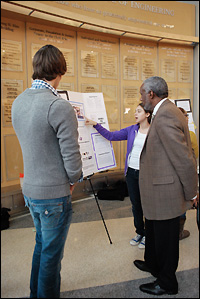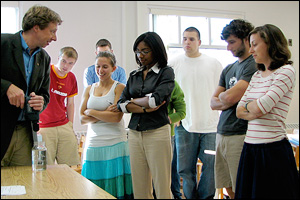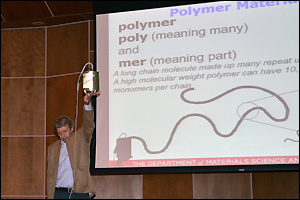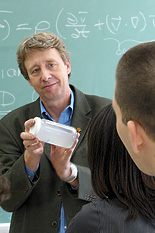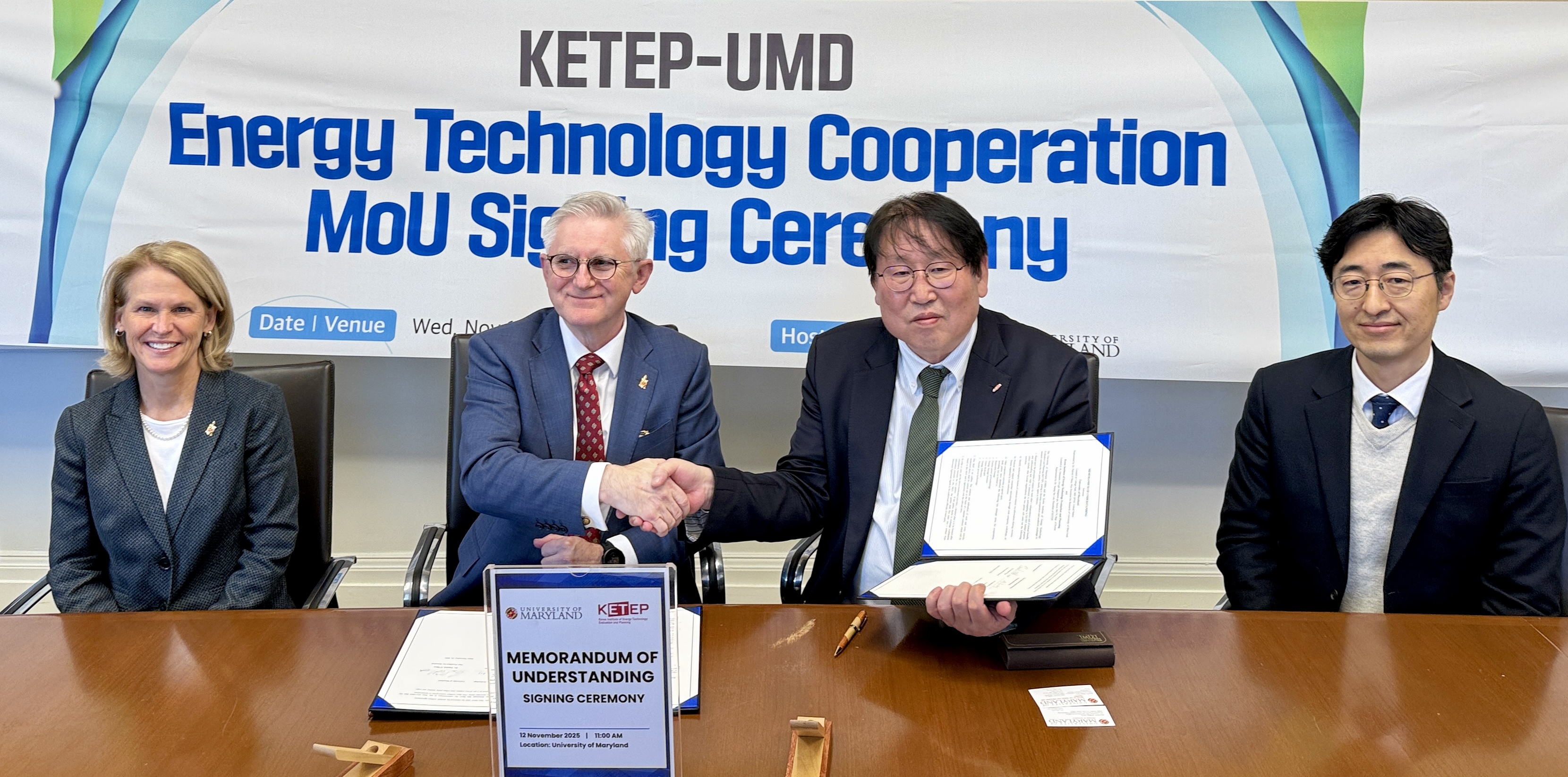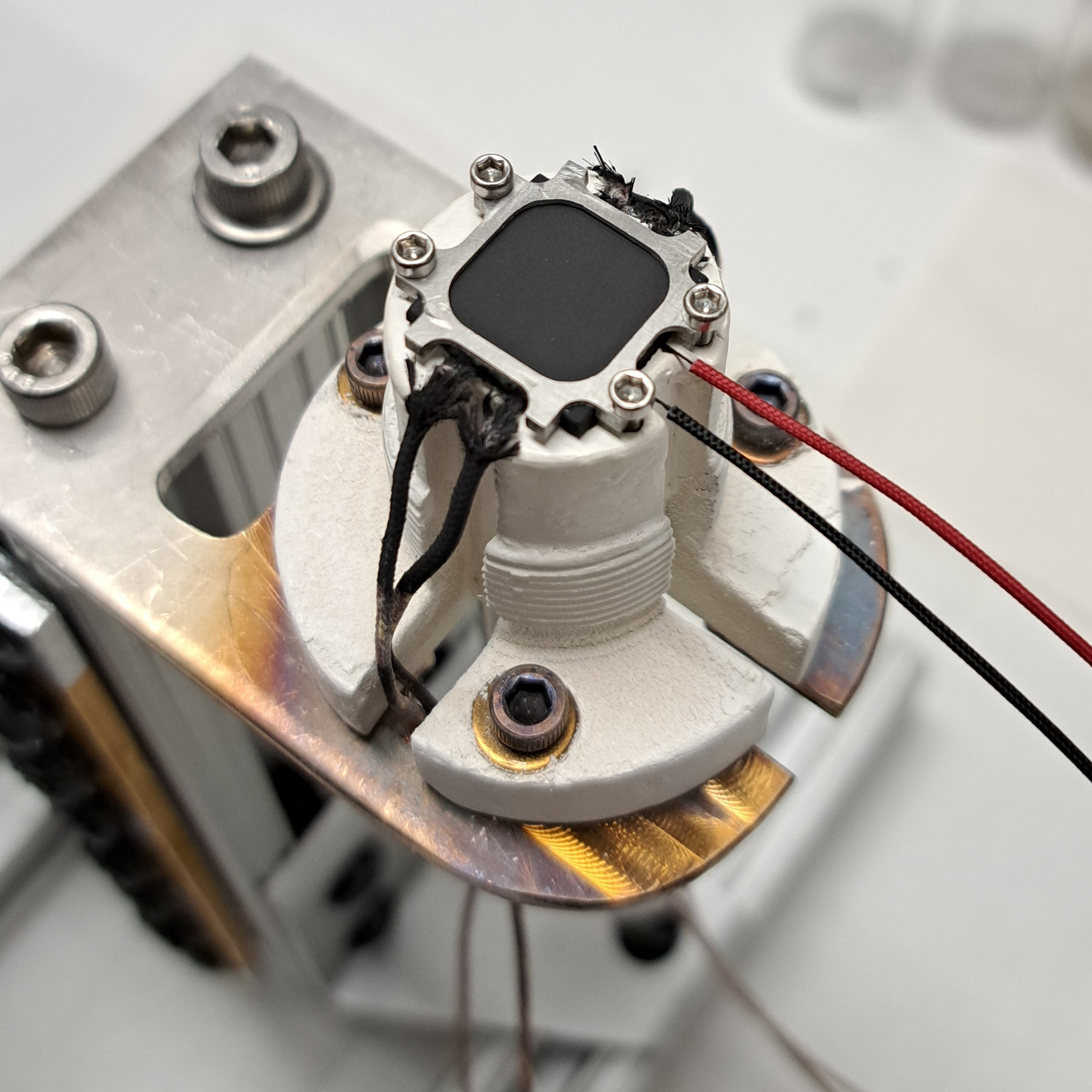News Story
How Technology Choices Affect Us All: I-Course Examines Contexts and Consequences
The challenge of making informed decisions about how we develop and implement technology is what inspired Department of Materials Science and Engineering (MSE) professor Gottlieb Oehrlein to create ENMA 289A: Bigger, Faster, Better: The Quest for Absolute Technology. The class, offered for Spring 2013, is an I-Course, part of the University of Maryland's initiative to expose non-science majors to the roles of science, engineering, math and technology in historical and contemporary issues.
"What I hope to do is stimulate students to think about the technology choices we have as we move forward, and consider the potential benefits and consequences ahead of time," says Oehrlein.
ENMA 289A addresses the applied science and engineering concepts necessary to understand important technological advances and breakthroughs; the motivations behind pursuing technology-based world records; the political, economic, societal and personal decisions that are the driving forces behind major technological advances; historical breakthroughs and failures in the adoption of new technologies; and critical, differentiated evaluations of novel technologies to determine how they will improve or potentially damage our lives.
"I didn’t take into account that there was a thorough history of technology and studies on how it actually affects us," says Chris Ortiz, a Business Information Systems major who took the course in Spring 2012. "But every new advancement or innovation has a consequence, and it’s something that we should all learn and be cognizant of."
"Econ’s my major, but economic growth depends on technological growth and change," says Jay Savage, who also took the course last year, "I hope to go into hedge fund management or investment banking, [where] we have to make decisions about what’s better to fund…the only way to evaluate that is by being tech-literate."
That technical literacy is critical for students of all majors, adds MSE graduate student Garth Egan, Ortiz and Savage's TA, because the application of science and technology is inevitably linked to public policy, industry, and the economy. "A lot of the problems that we’re going to be facing are going to need more than just scientists to solve," he says.
Students interested in history may also wish to consider enrolling in I-Course ENMA 150: The Materials of Civilization, taught by MSE professor and chair Robert M. Briber.
For More Information:
Learn more about the I-Series courses »
Published November 1, 2012

